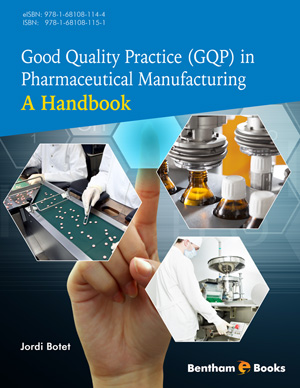Abstract
Pharmaceuticals are specialized products because of their characteristics and use and also because of their meticulous regulation. A failure in the quality of a pharmaceutical can put life at risk. Consequently, a specialized manufacturing standard (GMP) is applied with the intention of ensuring quality. Although still different GMP texts exist, there is a steady effort towards their harmonization. GMP is not just practical pharmaceutical common sense, but also a guideline which determines the organization of a pharmaceutical plant. The aim of the pharmaceutical industry is not only manufacturing products with the purported quality, but also delivering them to the patients timely and without any loss of quality. This is why attention should be paid to the whole supply chain of pharmaceuticals and thus complementary standards (GSP, GDPs, and GTDP) have been developed. The globalization of the pharmaceutical market has not only supposed an increase in complexity of the supply chains, but also of contract manufacturing or analysis (outsourcing). Keeping under control such a complex and global market is not easy and this explains why counterfeiting has become a significant matter of concern.
Keywords: API, bulk, counterfeiting, dosage form, excipient, GDPs, GLP, GMP, GSP, GTDP, harmonization, intermediate, key personnel, MAH, outsourcing, packaging, quality assurance, quality control, route of administration, supply chain.






















